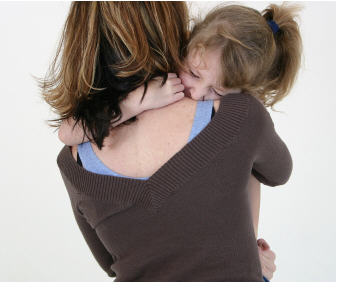
Postpartum Depression Spans Generations
Animal study suggests stress-induced depression in new mothers extends to daughters
NORTH GRAFTON, MA; October 8, 2013—A recently published study suggests that exposure to social stress not only impairs a mother's ability to care for her children but can also negatively impact her daughter's ability to provide maternal care to future offspring.
Researchers at the Cummings School of Veterinary Medicine at Tufts University conducted a transgenerational study with female rats, examining the behavioral and physiological changes in mothers exposed to chronic social stress early in life as a model for postpartum depression and anxiety.
A different male rat was placed in the cage of the first-generation mothers and their newly born pups for an hour a day for 15 days. Consistent with previous research, the lactating mother rats responded to the stress of the intruder with depressed maternal care, impaired lactation, and increased anxiety. The pups of these mothers were also exposed to the conflict between their mothers and the male intruders.
After reaching maturation, second-generation females were mated and compared to a control group where neither the mother nor the pups had been exposed to a male intruder. The second generation mothers that experienced the early life stress also displayed depressed maternal care, impaired lactation, and increased anxiety. There were also changes to hormone levels: an increase in the stress hormone corticosterone, and decreases in oxytocin, prolactin (important to both maternal behavior and lactation) and estradiol.
"The endocrine and behavioral data are consistent with what has been reported in studies of depressed human mothers. The potential with this animal model is that it can be used to study new preventive measures and treatments for postpartum depression and anxiety, and the adverse effects of these disorders on offspring," said Benjamin C. Nephew, Ph.D., assistant professor in the Department of Biomedical Sciences at TCSVM and principal investigator of the study.
The study was published in the September issue of Hormones and Behavior.
"The chronic social stress model used in this study provides insight into how social stress affects both human and animal behavior in the areas of maternal care, anxiety and lactation, and provides a wealth of observations," said Lindsay M. Carini, the study's lead author.
Funding for the study came from the National Institute of Child Health and Human Development and the Tufts Clinical and Translational Science Institute.
This work builds off earlier Tufts research in the area of reproductive biology, which includes initial findings on the effects of chronic social stress on maternal behavior which was published in Stress by Nephew and Professor of Biomedical Sciences Robert Bridges, Nephew's postdoctoral mentor at TCSVM.
ARTICLE:
"Effects of early life social stress on endocrinology, maternal behavior, and lactation in rats," Carini, Lindsay M., Nephew, Benjamin C. Hormones and Behavior (2013), doi: 10.1016/j.yhbeh.2013.08.011.
